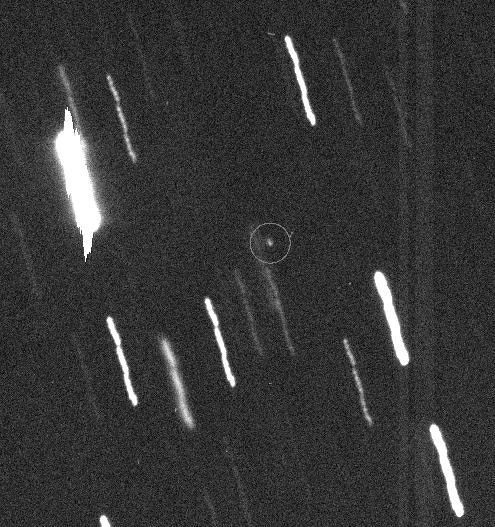Massive Asteroid 'Apophis' May Hit Earth In 2068 Astronomers Fear
A recent report from astronomers asserts that an asteroid named "Apophis" is drifting away from its previously predicted orbit due to the Yarkovsky effect.
The Yarkovsky effect is when the sun heats an asteroid unevenly, causing the space rock to radiate away heat energy. The result can be a tiny push in a certain direction.
David Tholen, an astronomer for the University of Hawaii at Manoa, stated his findings in an online press conference.
"Basically, the heat that an asteroid radiates gives it a very tiny push," Tholen explained during a virtual meeting with the American Astronomical Society's Division for Planetary Sciences.
"The warmer hemisphere would be pushing slightly more than the cooler hemisphere, and that causes the asteroid to drift away from what a purely gravitational orbit would predict," Tholen said.
Scientists originally argued that since 2004 they observed Apophis enough times and ruled out a possible impact in 2068. Those calculations, however, were based on an orbit not affected by the sun's energy. Ultimately, this means we can't yet rule out Apophis being a threat in 2068, Tholen said.
"The 2068 impact scenario is still in play," Tholen said. "We need to track this asteroid very carefully."
In 2029 the asteroid will make a close approach to Earth, and allow ground-based telescopes to get a more detailed look at the asteroid's surface and shape.
"Of all dates, Friday the 13th in April, April 13, is when the flyby will occur," Tholen said. "Obviously, the 2029 close approach is critical. We'll know after that occurs exactly where it was as it passed the Earth, and that will make it much easier for us to predict future impact scenarios."
The chances of Apophis impacting Earth are still very low. The Center for Near-Earth Studies reported that there is a 1 in 150,000 chance that the asteroid hits Earth.
In 2019, SpaceX CEO Elon Musk said he wouldn't worry about this "particular" asteroid. However, Musk warned that a "big rock will hit Earth eventually and we have no defense for it."
NASA Administrator Jim Bridenstine said in April 2019 that an asteroid strike is not something to be taken lightly and is perhaps Earth's biggest threat, Space.com reported.

© Copyright IBTimes 2024. All rights reserved.





















